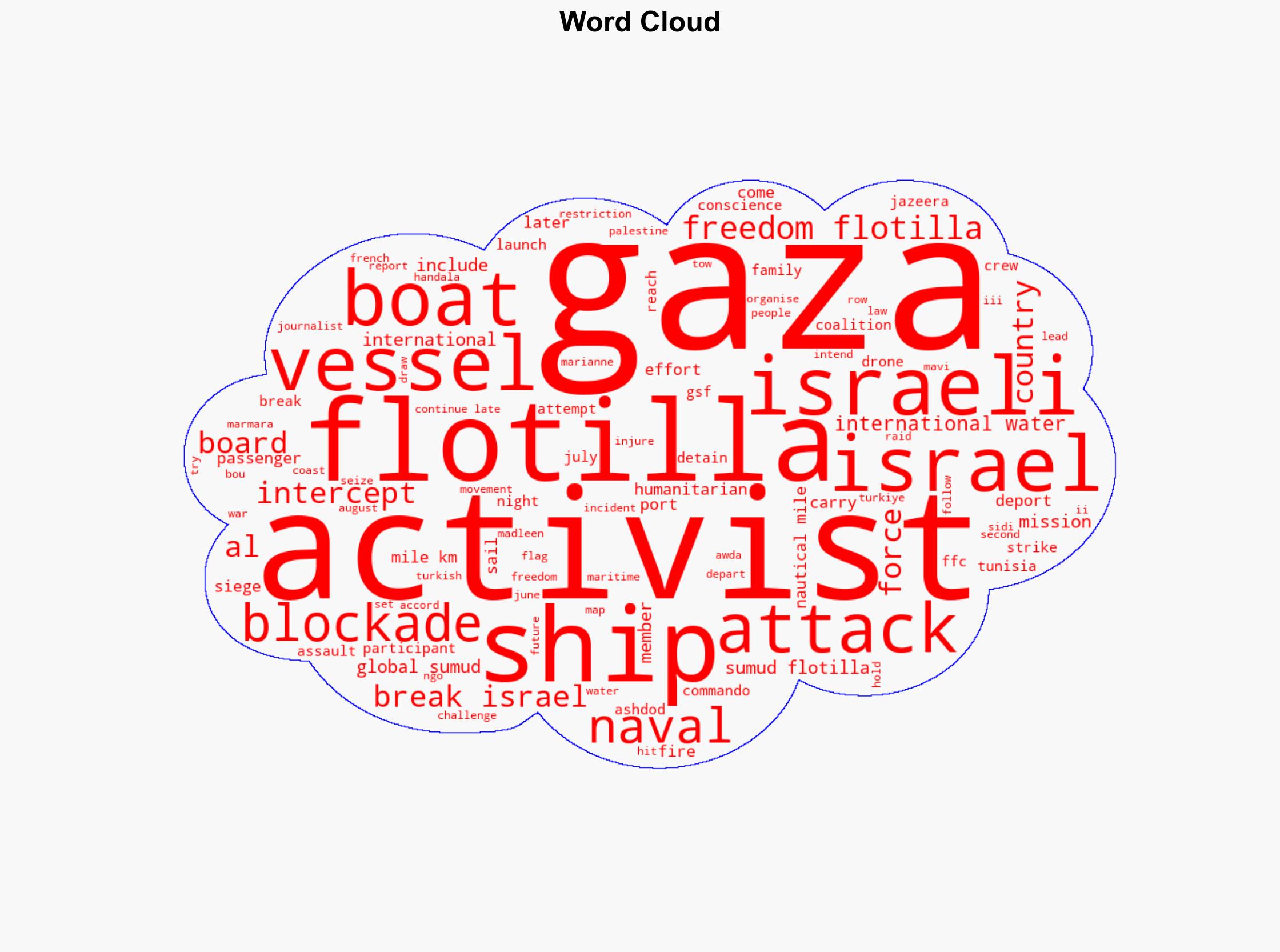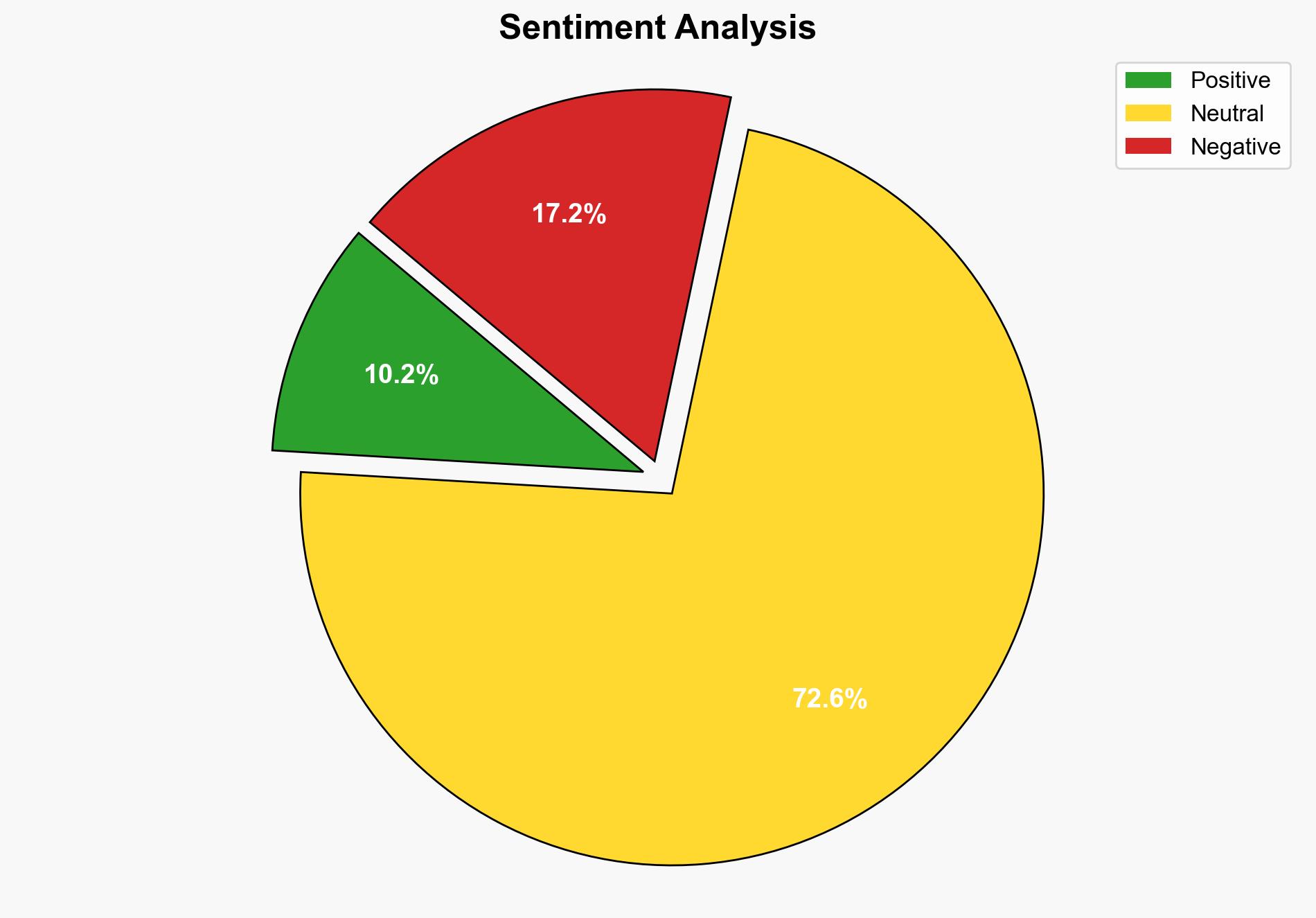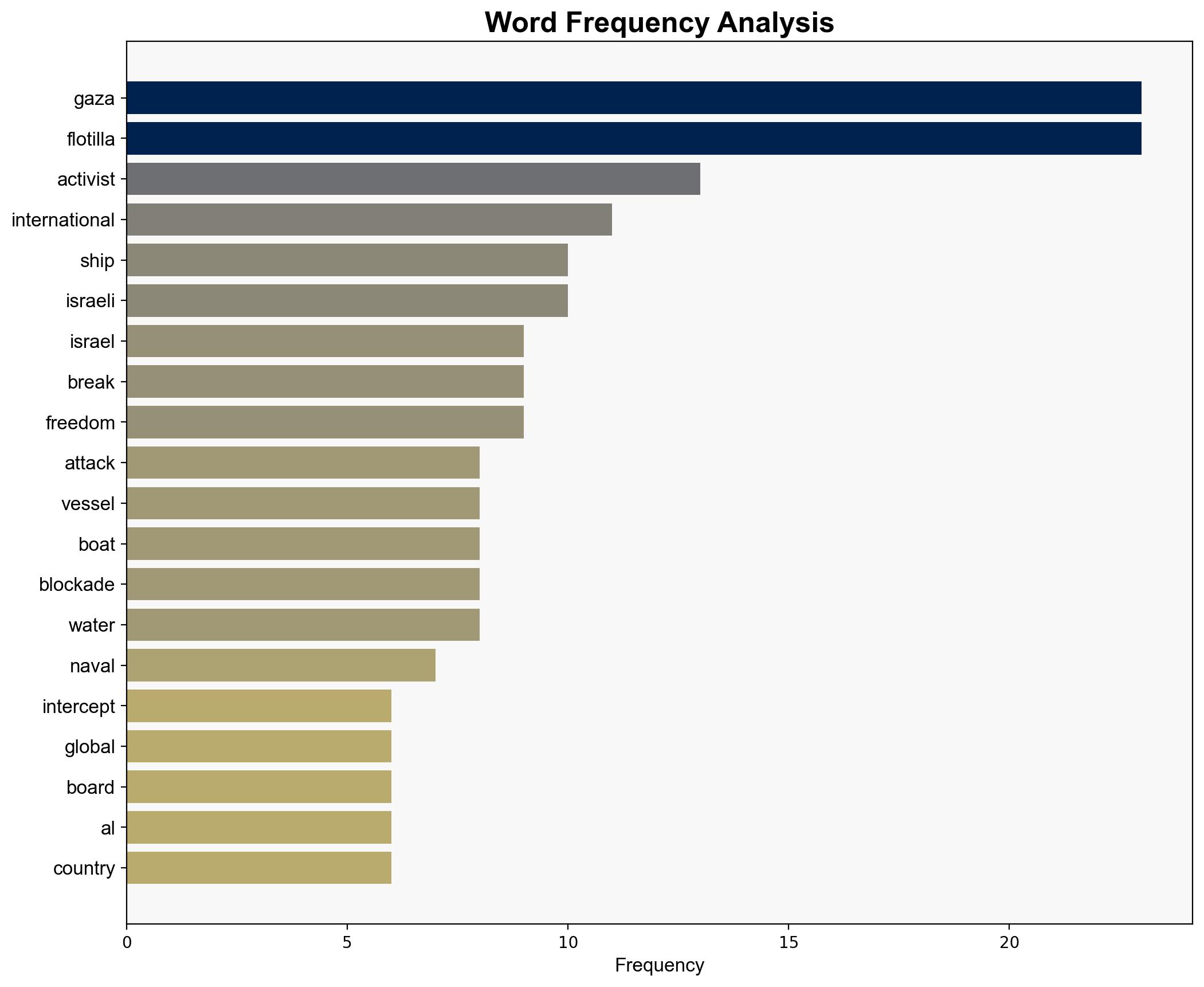Map Israel has attacked intercepted all Gaza-bound flotillas since 2010 – Al Jazeera English
Published on: 2025-09-10
Intelligence Report: Map Israel has attacked intercepted all Gaza-bound flotillas since 2010 – Al Jazeera English
1. BLUF (Bottom Line Up Front)
The most supported hypothesis is that Israel has consistently intercepted Gaza-bound flotillas as part of its strategic policy to enforce the blockade on Gaza, driven by security concerns. Confidence in this hypothesis is moderate due to the complexity of international maritime law and geopolitical dynamics. Recommended action includes diplomatic engagement to address humanitarian concerns while ensuring regional security.
2. Competing Hypotheses
1. **Hypothesis A:** Israel intercepts Gaza-bound flotillas primarily to enforce its naval blockade for security reasons, preventing arms smuggling and maintaining regional stability.
2. **Hypothesis B:** The interceptions are part of a broader strategy to deter international activism and delegitimize efforts to challenge the blockade, potentially involving covert operations to sabotage flotillas.
Using Analysis of Competing Hypotheses (ACH 2.0), Hypothesis A is better supported by historical patterns of Israeli military actions and public statements emphasizing security threats. Hypothesis B is less supported but plausible given reports of sabotage and diplomatic pressures.
3. Key Assumptions and Red Flags
– **Assumptions:** Hypothesis A assumes that security is the primary motive for Israel’s actions. Hypothesis B assumes a coordinated effort to undermine activist movements.
– **Red Flags:** Discrepancies in accounts of sabotage incidents and lack of independent verification of claims suggest potential bias or misinformation.
– **Blind Spots:** Limited access to Israeli strategic deliberations and potential underestimation of non-state actor capabilities.
4. Implications and Strategic Risks
– **Patterns:** Consistent interception of flotillas suggests a robust Israeli policy framework.
– **Cascading Threats:** Escalation of tensions could lead to broader regional conflicts, affecting maritime security and international relations.
– **Geopolitical Dimensions:** Strained Israel-Turkey relations and potential for international legal challenges.
– **Psychological Impact:** Potential radicalization and increased activism due to perceived injustices.
5. Recommendations and Outlook
- Engage in multilateral diplomatic efforts to address humanitarian concerns while ensuring security interests.
- Enhance intelligence-sharing mechanisms to monitor and mitigate potential threats from non-state actors.
- Scenario Projections:
- **Best Case:** Diplomatic resolutions lead to eased tensions and improved humanitarian access.
- **Worst Case:** Escalation to military conflict involving regional actors.
- **Most Likely:** Continued interceptions with periodic international diplomatic interventions.
6. Key Individuals and Entities
– **Miguel Duarte:** A passenger who reported seeing a drone overhead during an incident.
– **Global Sumud Flotilla (GSF):** Coalition organizing the flotillas.
– **Humanitarian Relief Foundation (IHH):** Turkish NGO involved in previous flotilla missions.
7. Thematic Tags
national security threats, maritime security, geopolitical tensions, humanitarian intervention




